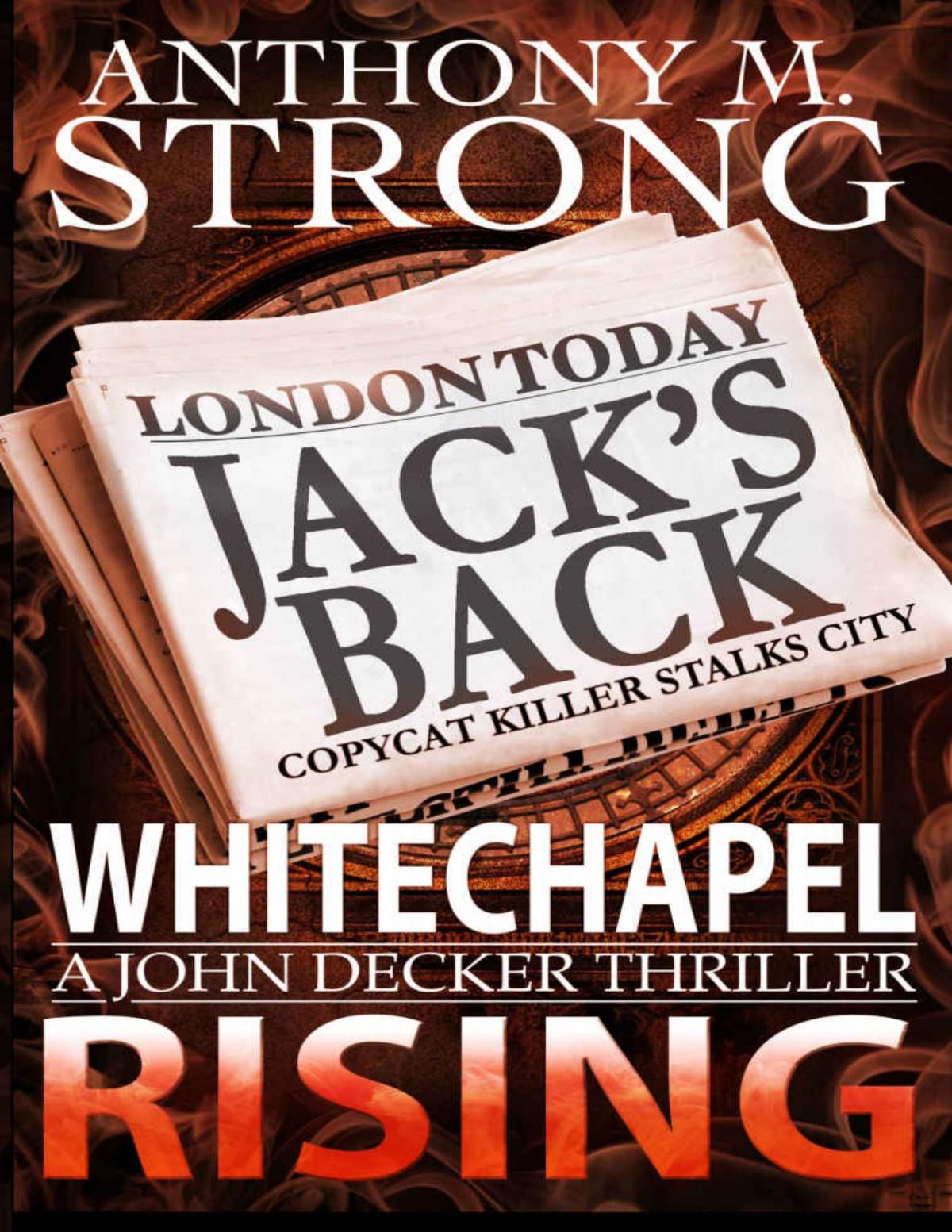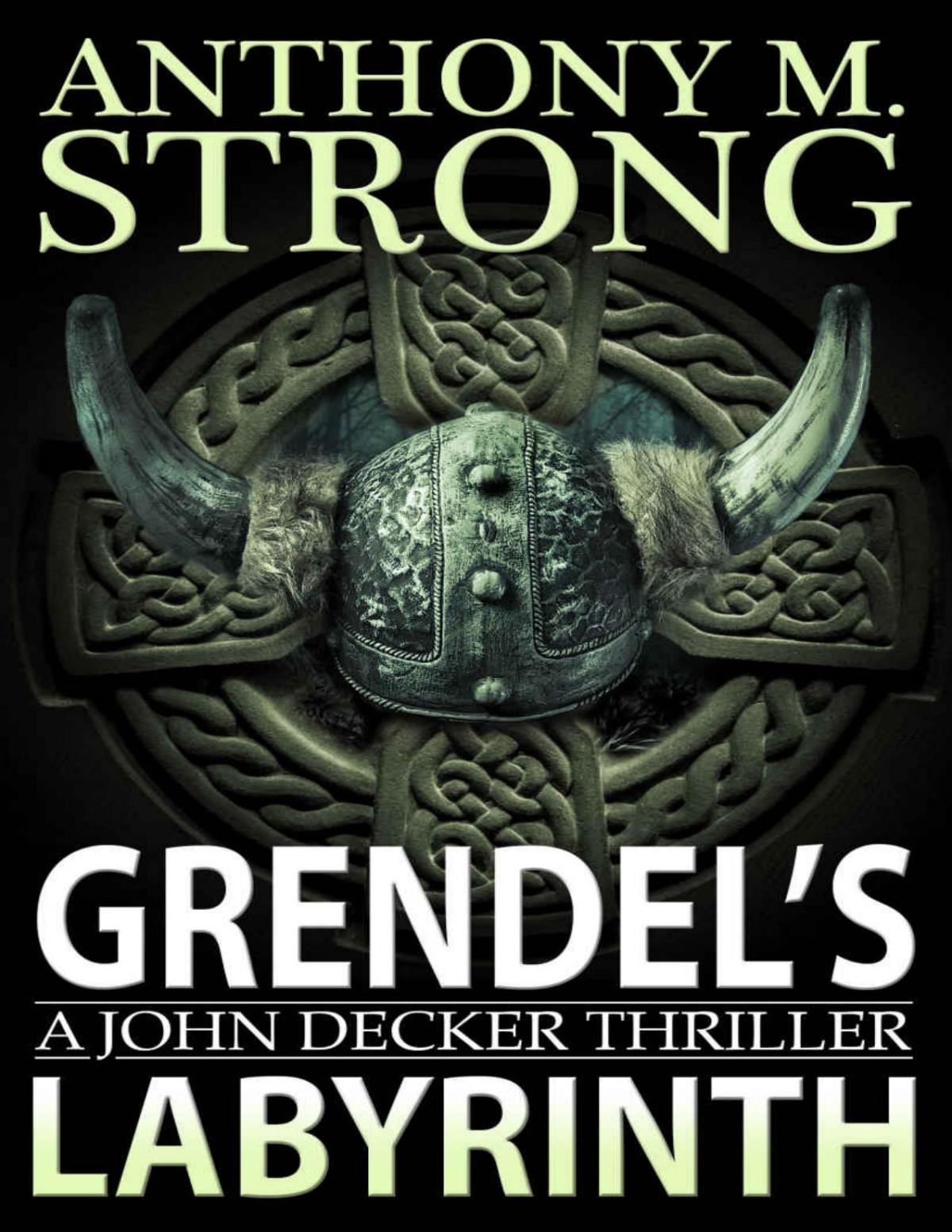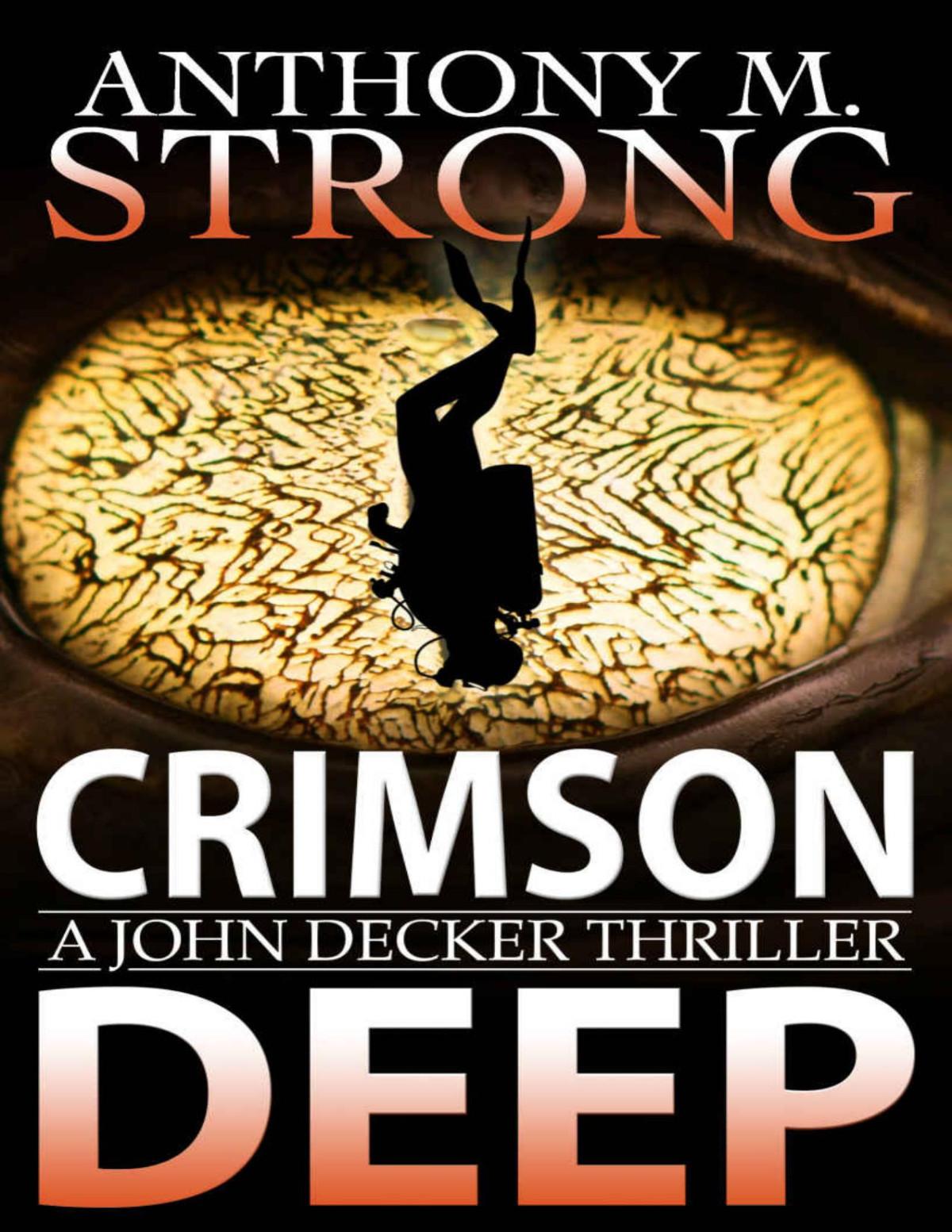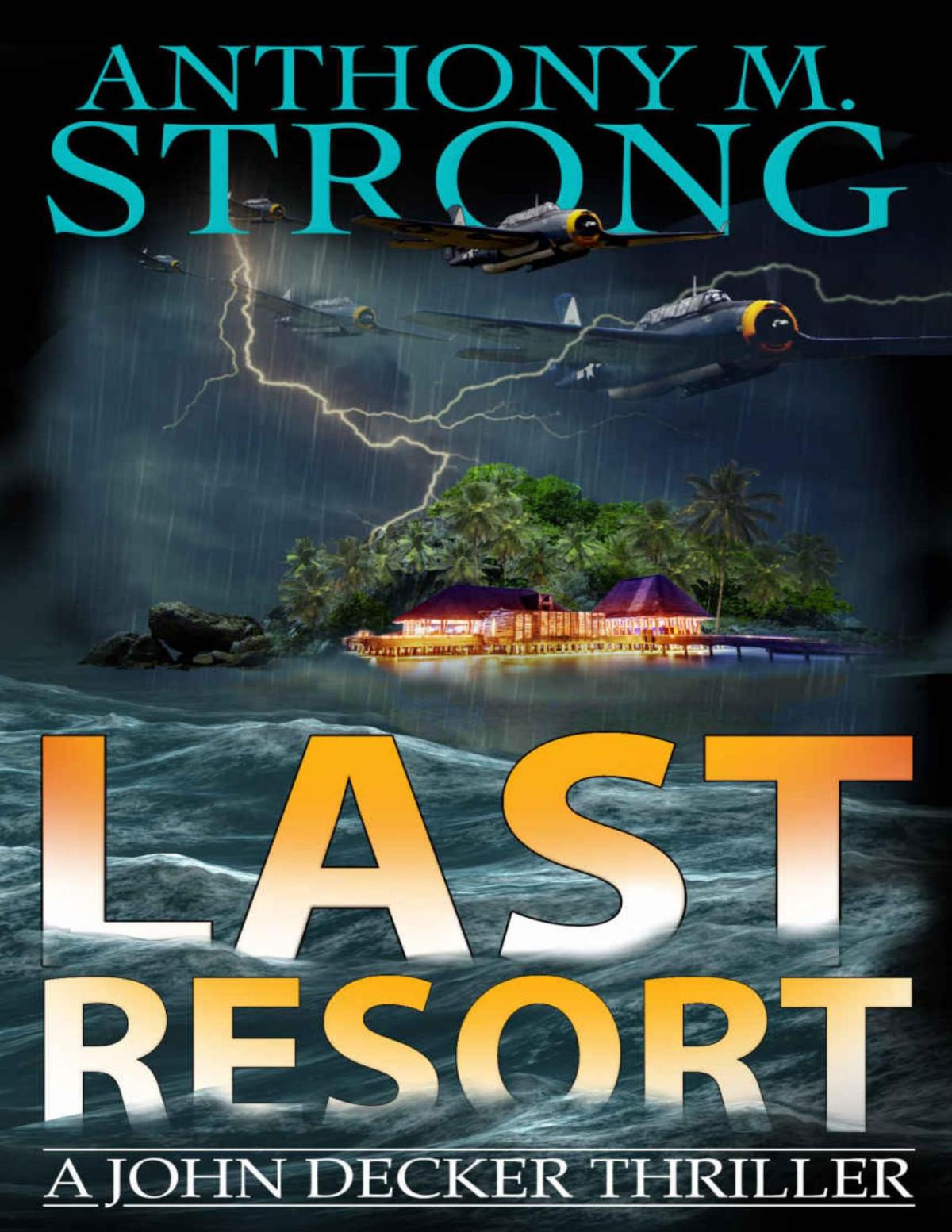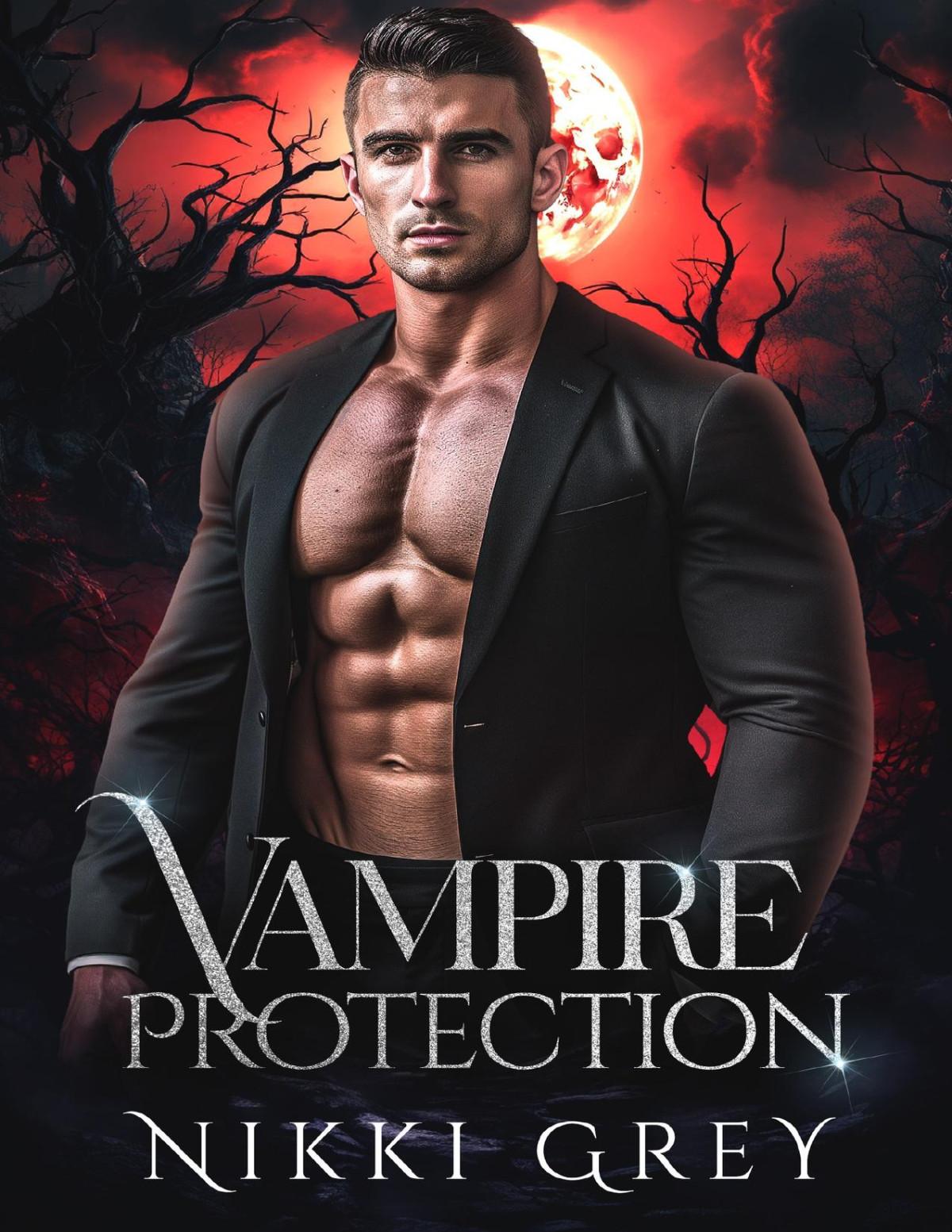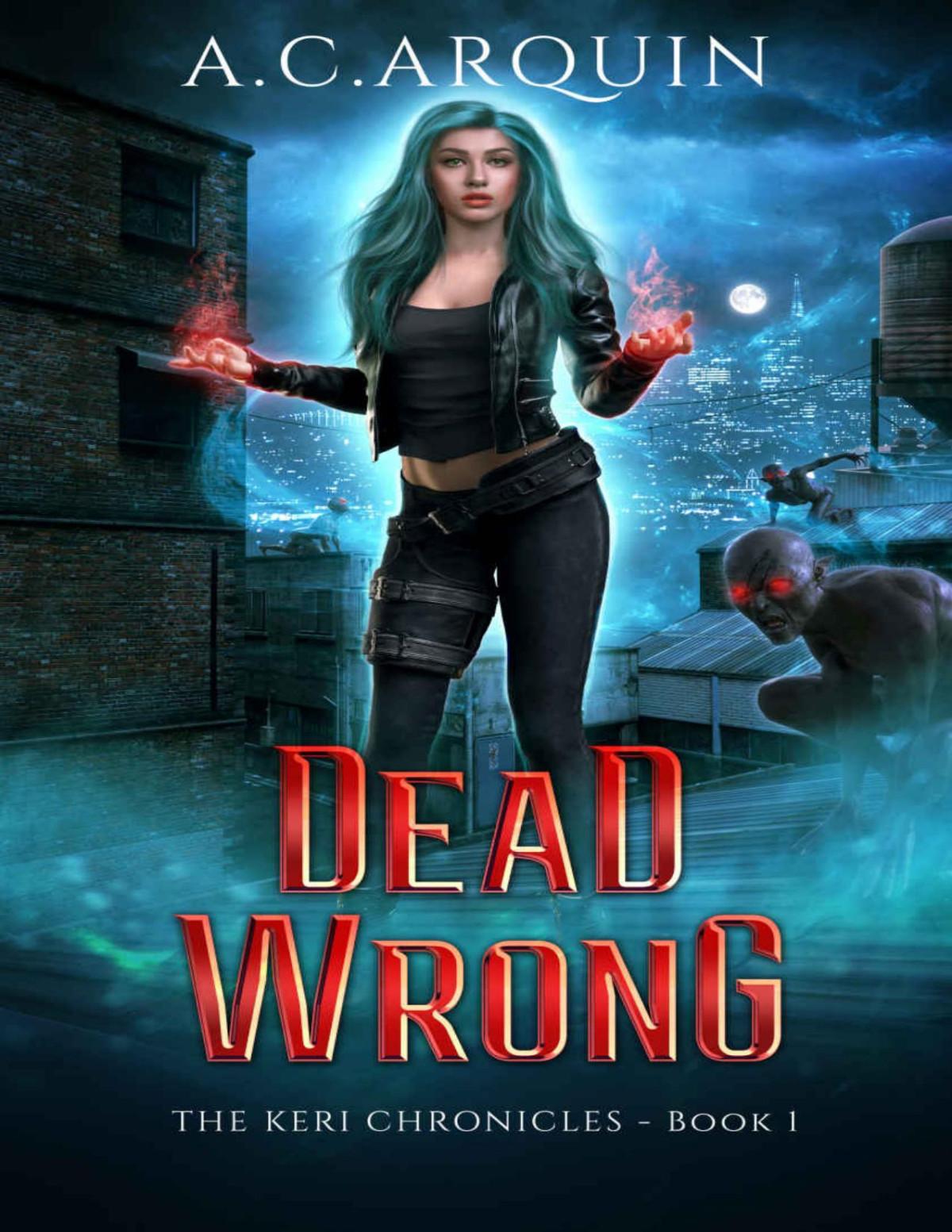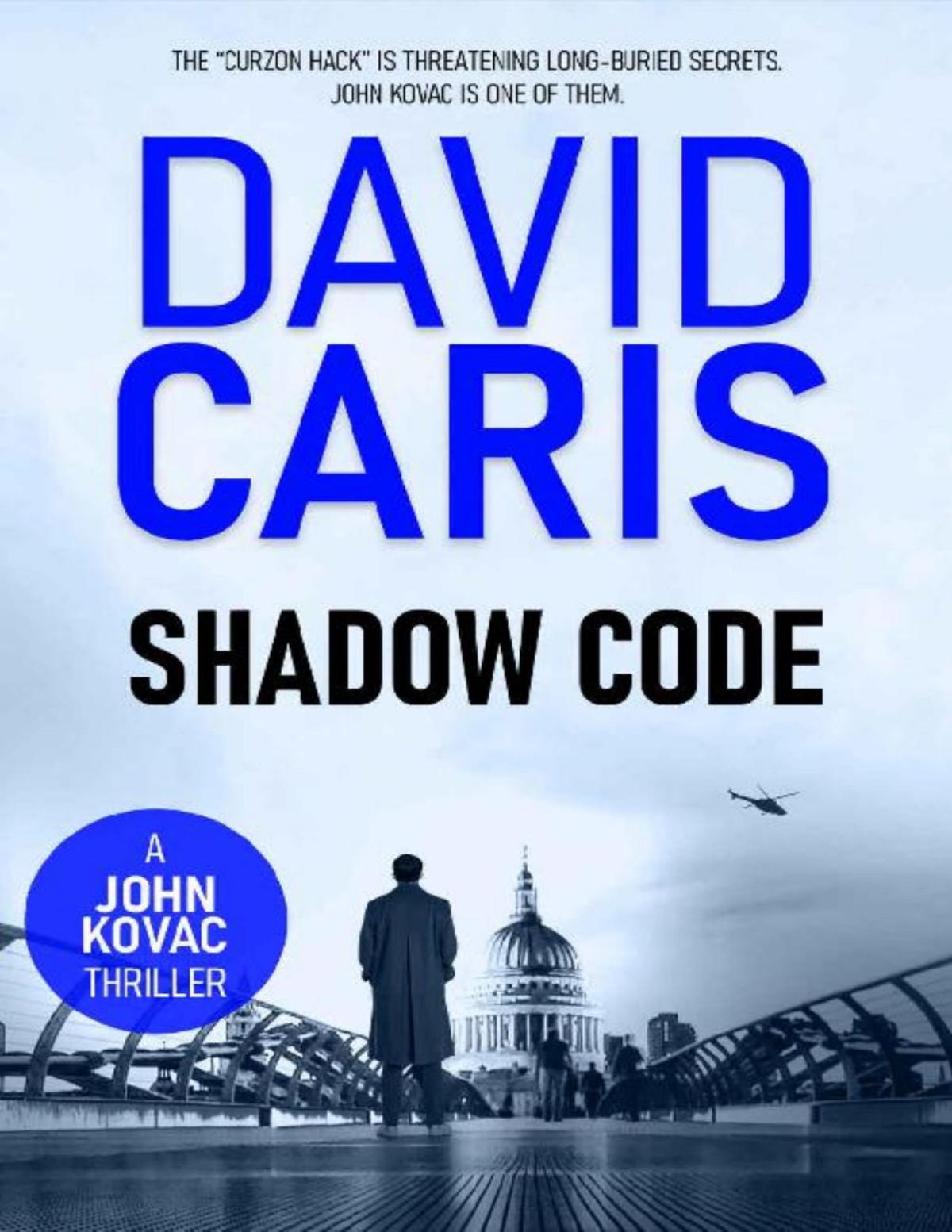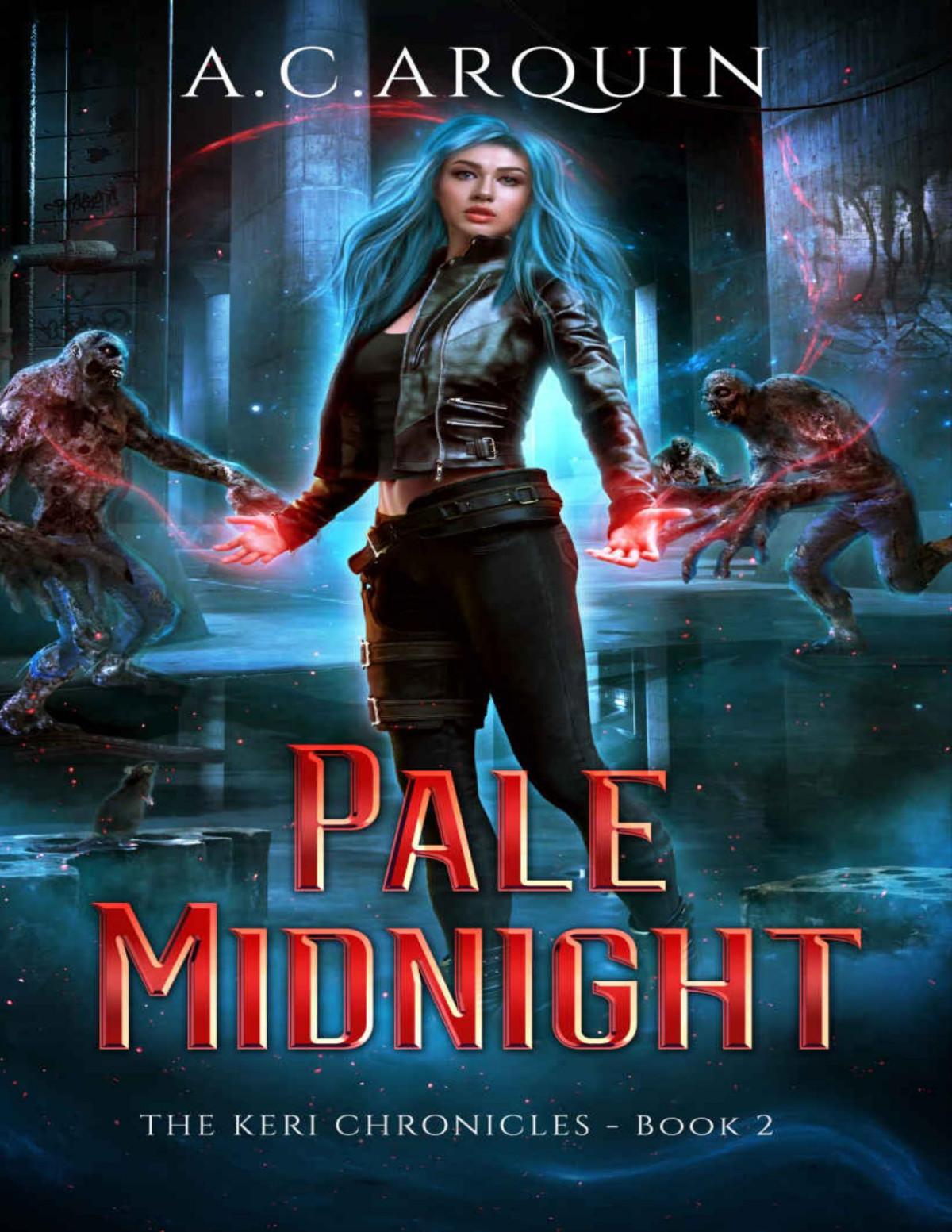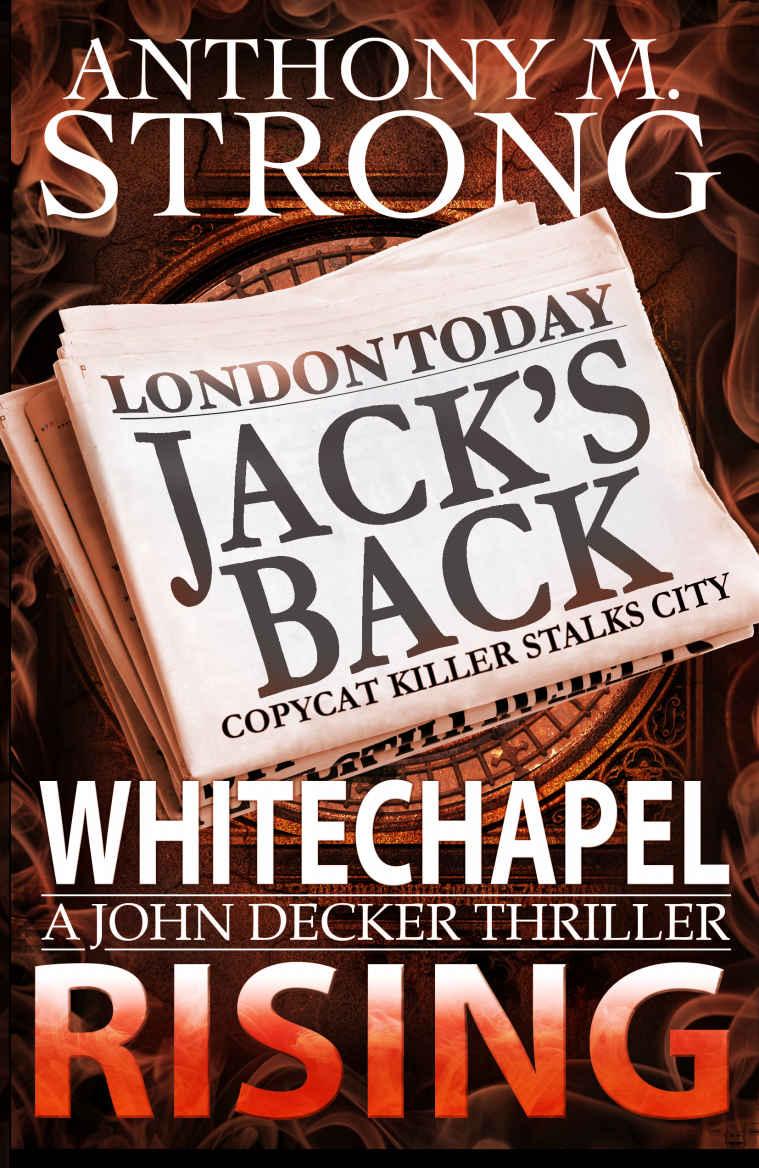Prologue
The Whitechapel District, London – February 1889
THEY ARRIVED TOO late to save her. She lay in the doorway of a common lodging-house on Heneage Street, slumped over as if passed out from drink. This was not an unusual sight in the early hours of the morning on the foggy streets of Whitechapel, especially on a Friday when the dockworkers and laborers took their weekly pay in search of entertainment. Those wages, given over to the women of the night, were swiftly spent in the taverns and pubs thereabouts, even if that money would’ve been better spent renting a bed for the night. Except this woman was not sleeping off the fruits of her ill-gotten gains. The gash that opened her throat and sent blood spilling down the front of her dress bore testament to that.
When they came upon the scene, they found her attacker stooped over the body, a knife in one hand. With the other he gripped her hair and held his victim’s head back so he could crouch low, his mouth upon the wound.
“Dear God. It looks like he’s…” Frederick Abberline didn’t finish the remark, his voice trailing off in horror.
“Yes, precisely. He appears to be licking the wound.” Thomas Finch, formerly of her Majesty’s Grenadier Guards, spoke in a hushed voice even though they were standing in the entrance to a brewer’s yard and out of earshot.
“We should apprehend the scoundrel now, while he’s in the act.” Abberline took a determined step forward.
Finch extended an arm and held him back. “Not so fast, Inspector. We cannot bring him in, you know that. We need a more permanent solution.”
“A cell in Newgate followed by a date with the noose feels permanent enough to me,” Abberline said.
“Might I remind you, Inspector, that I am in charge.” Finch spoke the words with the assurance of one comfortable in their authority. “And if you would take exception to that, do so with her Majesty, Queen Victoria, herself.”
“That won’t be necessary.” If Inspector Abberline felt slighted by this challenge to his rank, he showed no such emotion. Instead, he nudged his companion and nodded toward the doorway. “He’s on the move.”
“Then we shall follow,” Finch said. He did his best to commit the man’s features to memory-heavy coat, button-over boots, and derby hat-lest they temporarily lose sight of him. “But we must keep our distance. We cannot alert him to our presence.”
“I’ve been hunting this animal for months,” Abberline said as they stepped out of the shadows. He picked up a black leather satchel. “And now that we’ve caught him in the act, all we’re going to do is trail behind as he makes his escape. It doesn’t sit right with me. Think of the cases I could close if we make an arrest.”
“There will be no arrest tonight.” Finch pulled his jacket tight against the biting February chill. He understood Inspector Abberline’s frustration. Only a few months earlier, his own inclination would have been the same. Throw the deviant in jail and let him rot to the end of his days. But in the time since, his sentiment had changed. There were monsters in this world, savage beasts that required a firmer hand, and this was one of them. Finch leaned close to Abberline, his breath misting the air. “He will not kill again; of that I assure you.”
“I hope you’re right.”
“I am.” They approached the doorway, and the sprawled woman within. Finch kneeled and pulled a handkerchief from his coat pocket. He reached to her neck and soaked a good amount of the blood into the cloth. “The bag. Quickly.”
The inspector opened the bag to allow Finch to deposit the handkerchief inside, then closed it again. This done, he reached toward the victim’s wrist to check for a pulse.
“Leave her. We don’t have time.” Finch stood and steered his companion away from the grisly scene. He felt a pang of sorrow. Minutes ago, this poor soul had been a living human being with years ahead of her, albeit bleak. Now she was nothing more than a lifeless, limp rag doll sitting in a widening pool of her own blood. It wasn’t fair. But then, little was fair in the teeming slums of East
London. He placed a reassuring hand on the inspector’s shoulder. “Besides, there’s nothing you can do for her now. She’s beyond our help.”
“We could at least have checked.”
“That would have achieved nothing except allowing her killer to escape into the mist yet again.” Finch said. “I assure you she’s dead.”
“I hate this job sometimes.” Abberline blew on his hands for warmth. He kept pace with Finch and together they followed their quarry along Brick Lane, and then Fournier Street.
At Spitalfields Market, the man paused. Finch saw him reach under his coat and remove a fob watch. He glanced at it, then slipped the watch back inside the coat’s folds. Now he lingered at the curb, as if he had not a care in the world, looking more like a gentleman out for a late evening stroll than a frenzied killer.
“What’s he doing?” Abberline asked.
“I don’t know,” Finch replied, perplexed. There were few people on the streets at such a late hour, and they were still close to the murder scene. Their quarry should not be so confident in his escape. If a constable out patrolling the streets came across the body, the entire area would swarm with uniformed police in a matter of minutes. The city had been holding its breath, waiting for another murder since the gruesome discovery of Mary Kelly in her lodgings the previous November. Finch knew that Abberline had attended that crime scene. He also knew the great restraint it was taking for the Inspector not to blow his whistle and bring the uniforms running to make an arrest.
A moment later they had their answer.
A black carriage pulled up, obstructing their view of the murderer. When it pulled away again, their target had vanished.
“Damn it all.” Abberline ran into the street and watched the departing carriage with a mixture of frustration and horror. “He’s going to get away after all.”
“Not tonight, he won’t.” Finch raised a hand and looked down the empty street in the opposite direction to that which the carriage was now receding.
“What are you doing?”
“You’ll see.” A second carriage came into view, appearing from a side street as if it had been waiting there all along. After it stopped Finch motioned to Abberline. “If you’d care to climb aboard, I believe we have a murderer to catch.”
“How on earth did you do that?” Abberline asked as he heaved himself up into the carriage.
“Working for the Queen’s new investigative division has its perks.” Finch leaned forward and told the driver to get moving. “Our resources far outstrip that of the Metropolitan police.”
“But even so…” Abberline appeared flabbergasted. As the carriage gave chase, he glanced toward Finch. “You know, you haven’t told me who you actually work for. All I received was an order from Sir Charles to follow your instructions without question.”
“If the Commissioner gave you those orders, then why are you questioning me?”
“I just thought-”
“That your curiosity was getting the better of you?” Finch pulled his window down and leaned out, the breeze tussling his hair as he watched the pursuit.
The first carriage was following a weaving path through the streets, turning left, then right, and left again, only to arrive back upon the street it had originally been following. Finch guessed the circuitous route was meant to confuse anyone who noticed the speeding vehicle. He surmised, however, that they were heading for Mayfair given the general direction of travel. Ten minutes later he received confirmation of this hunch when the carriage finally came to a halt outside a three-story townhouse on Hay’s Mews.
Finch tapped on the carriage window and instructed their own driver to continue on past the Mews before stopping out of sight. They disembarked and hurried back to the corner in time to see the man in the derby hat disappear into the townhouse.
“We’ve got him now.” There was a tinge of excitement in Abberline’s voice. “He won’t be ripping any more women.”
“If all goes well, you are correct.” Finch led his companion toward the townhouse, stepping aside as the Ripper’s carriage trundled
past, empty now. When they reached the building Finch stopped. He glanced down toward the satchel that the inspector clutched in his hand. “We should prepare.”
“Right-ho.” Abberline kneeled and rested the satchel on the floor. He undid the buckles and opened it, withdrawing a bone handled Bowie knife with a ten-inch blade. This he handed to Finch. He withdrew a second knife and placed it on the ground near the bag.
“What about the rest of it?” Finch asked. He weighed the knife in one hand and touched the thumb of the other to the blade to satisfy himself of its sharpness.
“I have everything right here.” Abberline withdrew a set of accordion bellows of the type used to fan the flames in a fireplace. They would use this set for a much darker and important purpose. Next, he withdrew the sodden bloodstained handkerchief. Finally, he removed a set of Darby handcuffs that glinted a pale yellow under the weak light from a nearby gas lamp. “Tell me again why these need to be solid gold?”
“We’ve been through this already.”
“Seems a shame to waste so much precious metal.”
“It’s the only way.” Finch held his hand out. “Give me the cuffs and handkerchief.”
Abberline complied, before picking up his Bowie knife and the bellows. He stood up, leaving the satchel on the pavement. If they survived this night, he would retrieve it later. “We’d best get this over with then.”
“You know what to do?”
Abberline nodded.
“Good.” Finch approached the townhouse door before glancing back at his partner. “Remember to keep a cool head in there. We need no more deaths tonight.”
“I’ll keep my head,” Abberline said, then he squared himself to the door, and kicked it in with a heavy boot.
It had begun.
Chapter 1
Mayfair, London – Two Days Ago
REGGIE BRADSHAW STOOD, hands on hips and looked up at the three-floor townhouse in the affluent London suburb of Mayfair with a scowl on his face.
“How do people afford these places?” He asked with a shake of his head. “I swear the rich keep getting richer and the poor get poorer. It ain’t fair.”
“Has it ever been fair?” His co-worker, Matthew Kent, was used to Reggie’s diatribes about class inequality and the plowing asunder of the workingman. He’d be lying if he said it didn’t get old. “Pays our wages though,” he added, hoping Reggie would drop the subject, just this once.
“Only because we were the cheapest bid. Tight arsed bastards.” Reggie couldn’t imagine what it would be like to occupy such a fancy property in the middle of the city. His own palatial spread was a fourroom flat on the Marsden Estate in Acton, and that included the bathroom. The local authorities had earmarked the tower block for demolition three years before, then changed their minds. This did nothing but ensure the council-owned estate received even less maintenance than before. Now there was fresh talk of tearing the fifteen-story eyesore down, and Reggie hoped they did, because then he might get moved to a nicer council house in the suburbs. Somewhere with a garden. Either way, he wouldn’t get to live anywhere near the multimillion pound homes he helped renovate for the stockbrokers and company directors that swarmed London’s financial and business districts. It was, he thought, depressing.
“Come on, then. If you’re done with grumbling, we should get to work.” Matthew lifted his toolbox from the back of the van. With the other hand, he grabbed a small jackhammer and started toward the empty and partially gutted building. “I’d like to get out of here at a reasonable time tonight, I’ve got better things to do with my evening than working for the man.”
“Like what?” Reggie scooped up his own toolbox and an angle grinder, slammed the van’s back doors, then followed his partner into the townhouse and down what remained of the home’s main hallway. To his left a twisting staircase climbed upward into darkness, the exposed support studs giving it the appearance of a skeletal snake coiling through the building’s innards. “All you ever do is sit on your fat behind, eat pizza, and watch TV. When you’re not sinking a few at the pub, that is.”
“Yeah. Like your life’s a whirl of society events.” People who lived in glass houses shouldn’t throw stones, as the tired old phrase went. “If you must know, I have a date.”
Reggie almost creased over with laughter. “You realize the woman who serves you at the chip shop on Dean Road doesn’t count as a date, right?”
“Eff off.” Matthew gave his partner the middle finger as they reached the door leading to the cellar.
“Do you stare into each other’s eyes over a nice piece of fried haddock?” Reggie chuckled at his own wit and flipped the light switch, then started down the steps.
“You’re in the wrong profession, mate,” Matthew said as they reached the bottom. “You should’ve become a standup comedian.”
“I’d have been damned good at it too.” Reggie placed his toolbox on the floor and switched on a set of halogen work lamps aimed toward a brick wall near the back of the cellar. The twin beams illuminated a weaving step crack that ran from the bottom of the wall to the joists above. Nearby, a pair of hydraulic jacks supported the ceiling. This would allow them to chip out the old bricks and mortar and rebuild the wall without the entire structure coming down on their heads.
“What are you in the mood for today?” Matthew asked, heading for an old boombox. Covered in multicolored flecks of paint and an unhealthy layer of dust, the thing had seen better days. He shuffled through a pile of CDs. “We have some Madonna, Aerosmith, and Rick Astley.”
“Why on earth do we have Rick Astley?” Reggie plugged the handheld jackhammer into an extension cord and approached the
wall. “Do I look like a teenaged girl from 1989? You’ll be telling me you have a Right Said Fred CD next.”
Matthew shrugged. “Don’t ask me, they aren’t mine, I found them in the van. I don’t even own any CDs. Gave them all to the charity shop years ago when I got into the streaming and all that. Purely digital, I am.”
“You’re purely something.”
“Just pick one. It doesn’t matter much, anyway; we won’t hear it for shit over that jackhammer.”
“Might as well put on the Rick Astley then.” Reggie donned a pair of ear protectors, then took a step toward the wall and pushed the jackhammer’s blade against the mortar between the bricks. He tensed his arms and pulled the trigger a moment after the jangling refrain of “never gonna give you up” filled the cellar. The ear-splitting thrum of the hardened steel bit smacking into the cement holding the bricks in place did a fine job of drowning out the questionable music. He sensed Matthew standing to his left, watching the jackhammer chip away at the wall. When his arms got tired, he would stop and hand the tool over to his partner They would keep this up, switching back and forth, until the old brickwork was removed, and a new, stronger wall replaced it.
It didn’t take as long as they thought.
After only a few minutes of pounding with the jackhammer, Reggie noticed a spider’s web of new cracks spiraling out from the original and following the lines of mortar that held the century-old bricks together.
He felt Matthew tap his shoulder, the touch urgent. Then, before he could even let his finger up from the jackhammer’s trigger, the wall in front of him heaved and buckled, then came crashing down in a billowing cloud of dust.
“Holy hell,” Reggie jumped backwards just in time to avoid the debris. The jackhammer ceased its incessant chatter.
Matthew coughed and waved a hand in front of his face to disperse the cloying dust that hung in the air. “Sweet. That didn’t take as long as I thought it would.”
“Damned wall almost got me.” Reggie set the jackhammer aside and kicked at a stray brick that had landed near his foot. “Whole thing must’ve been rotten. It’s a wonder it didn’t come down on its own.”
The dust was settling now. Matthew wiped a particle from his eye and peered at the yawning hole revealed by the collapsed wall. The halogen lamp lit enough of the space beyond to reveal that they had found another room. “Will you look at that?”
“No wonder this wall was failing. It’s not original to the building. Is not even part of the foundation.” Reggie inched forward, stepping gingerly over the collapsed bricks. He reached out and touched the hole’s vertical edges where the newer brickwork had, until a few moments ago, met the old. “This used to be a doorway. Someone must’ve bricked it up at some point.”
“I’ve heard about this kind of stuff,” Matthew said. “There was this pub over in Hackney where they found a whole tunnel system behind a basement wall. There’s probably places like this all over the city.”
“Question is, what’s in there.” Reggie nodded toward the work lamp sitting on its tripod a few feet away “Bring that thing over here, let’s see what we’ve got.”
“Maybe there’s treasure back there.” Matthew lifted the lamp by its handle and started toward the hole.
“It’s a bricked-up room, dumbass.” Reggie rolled his eyes. “Why would there be treasure? You think some stray Victorian pirate wandered down here with his chest of gold coins?”
“There must be something valuable in that room, otherwise, why would they hide it?” Matthew set the lamp down in front of the newly exposed entrance.
“Let’s find out.” Reggie stepped beyond the opening. The room was large, falling away into darkness beyond the halogen work light’s beams. It was, he guessed, at least a third the size of the cellar they’d been working in.
“Wow.” Matthew had his phone out, the flashlight pushing back the gloom. He played the beam over the walls to expose a yellowed map of Whitechapel with curled edges that sagged in one corner where the pin holding it had rusted away. Next to this, in the same
deteriorated condition, were newspaper clippings also attached to the wall, front pages with dramatic headlines in fading ink. Horror in Whitechapel. Jack slaughters Two in One Night. East End Ripper Claims a Fifth Victim.
“Look at this. You’re never going to believe it,” Reggie said from further within the room.
Matthew turned away from the wall.
Reggie had his own phone out, it’s light playing over a wooden table. There, glinting in the beam from his flashlight, was a viciouslooking knife, the tarnished blade stained dark in patches. “I think that’s blood. You don’t think we’ve found…” Reggie’s voice trailed off.
“Jack the Ripper’s lair?” Matthew could hardly believe what he was seeing.
“Yeah.”
“I don’t know.” Matthew lifted his phone, shining the light beyond the table. “But if we have, then that must be Jack himself.”
Reggie looked up, a chill running through him when he saw what Matthew was looking at. There, caught in the beam of his coworker’s light, was a corpse. It was sitting on a chair in the furthest recesses of the room, hands behind its back, a rictus grin painted across taut skin the color of varnished mahogany. Clearly male, it wore a shirt once white, the fabric now stained with splotches in varying degrees of brown. Dusty hair clung to its scalp, dull black and wiry. The corpse was in a remarkable state of preservation considering how long it must have been there. Even its eyes were open, looking at him with a dead, milky stare.
Reggie shuddered and took a step backwards.
An image flitted through his mind. The corpse climbing to its feet and lurching toward them, exhaling wispy puffs of dust as it cleared its desiccated lungs.
Reggie resisted the urge to turn and flee back up the stairs and not stop until he was in the street. Instead, he looked at Matthew, a grim expression on his face. “I think we’d better call the police.”
Chapter 2
HAY’S MEWS had been a circus of police and forensic technicians all afternoon. Even though the cadaver in the cellar had been there for decades, it still required the authorities to confirm no crime had taken place, at least not in any timeframe worth investigating. Now, as dusk settled across the city, there were only two vehicles left. A white van labeled as a private ambulance, waiting to receive the body, and a cherry red FIAT Uno that belonged to a team of researchers from the University of Central London who had spent the last four hours cataloging the hidden room and examining the contents within.
Rebecca Langley, the ambulance’s driver, leaned in the doorway the collapsed bricks had revealed and watched the university people fuss about snapping photos, taking measurements, and conversing in hushed tones. Her coworker, Anil, had given up and wandered off, and was no doubt on the phone chatting to his girlfriend out by the van.
Rebecca yawned, bored now the excitement of standing inside Jack the Ripper’s dungeon of horrors had worn off. When they’d shown up earlier that afternoon, she’d expected this to be a quick scoop and run. Grab the body and drop it off at the Westminster Public Mortuary, the closest facility to Mayfair. That was hours ago. Her shift should’ve ended already, and it irked her she was wasting her evening on this, despite the overtime pay. She had plans. Right now she should be at Jacque’s with her husband, enjoying a glass of chardonnay and a plate of seared scallops. The French restaurant was notoriously hard to book, with a waiting list that stretched weeks. Instead, she was standing in a dusty basement while their reservation went to some lucky walk-in, and her husband ate a microwave meal in front of the telly. For sure, this would make for a wonderful story down the road, when the frustration of missing date night had worn off. As it was, she couldn’t even tell her husband about it. There was a media blackout on the startling discovery, at least until the authorities processed the scene and removed the
body. The last thing anyone wanted was a horde of over-eager reporters and slack-jawed gawkers descending on the townhouse. Not that the discovery would stay a secret for long. In her experience, someone always leaked to the press. It was only a matter of time before eager journalists showed up with their news vans, at least until some other shiny story caught their attention.
Something was happening. There was a definite rise in the tension that permeated the dank cellar One researcher, a mousy woman with straw blonde cropped hair who had introduced herself as Callie, called out to her assistant, voice heavy with excitement. “Martin, bring me a specimen bag, quick as you can.”
A rail thin kid who looked barely old enough to be out of school turned from his study of the bloodied knife on the desk and whipped a plastic bag from an evidence kit sitting on the floor.
He handed it to his boss. “What do we have?”
“Some kind of dust here,” Callie peered closely at the cadaver’s face, and the brown skin stretched taut over it. “Like metal filings. If I didn’t know better, I’d think it was gold.”
“Just like the handcuffs.” Martin glanced backwards toward a plastic tub within which sat most of the smaller loose items already photographed in situ. One of these, and the cause of flurried excitement half an hour previously, had been a set of golden restraints holding the corpse’s wrists together behind its back. Originally the researchers had left them in place, but the mere act of probing caused the cuffs to drop off the emaciated body. When they picked the cuffs up it became obvious, because of their weight, that they were solid gold.
“This is getting stranger by the minute.” Callie straightened up. “I think I’ve got all the metal particles from the face. We’ll test them back at the university.”
Rebecca wondered how much longer this was going to take. She might have missed her restaurant reservation, but she would still like to get home before midnight. She dug her hand into her trouser pocket and pulled out a packet of cigarettes, slipping one from the carton and lifting it toward her mouth.
“Excuse me.” Callie was glaring in her direction. “You can’t light that in here.”
“Fine. I’ll go outside. Just let me know when you’re done.” Rebecca stomped back through the cellar and up to the first floor, then made her way through the building and out into the street.
Chapter 3
HE DRIFTED into consciousness as a drowning man might kick toward the water’s surface, desperate for air yet lost in a world of suffocating blackness. But then a pinprick of dull light appeared within the darkness as eyes that had stared blankly but hadn’t seen for over a century began to work again.
Abraham Turner’s chest heaved as he sucked a rasping breath into dry, desiccated lungs.
His vision had returned now, the void in which he’d slumbered retreating to reveal the familiar surroundings of the den hidden beneath his Mayfair residence. He opened his mouth, ran his tongue across lips as dry as sandpaper, and wondered if he dared move.
He felt old. Ancient.
He could sense the ravages of time weaving their way through his wasted muscles and mineralized bones. A thought flickered through his awakening brain. A memory of his last moments, or at least the last ones until now. Two men, one of whom he recognized, the other he did not. They had invaded his home. His sacred temple. And somehow, impossibly, they knew how to stop him.
A name rose through the fog.
Abberline.
Detective Inspector Frederick Abberline.
He felt a surge of rage as he remembered the inspector coming toward him, bellows in hand while at his side, the man with the glinting handcuffs.
Those restraints were now gone, as was the gold dust used to stun him into submission. Abberline was gone too. He did not know from where this knowledge flowed, only that the inspector was long departed. Nothing but dust and bones.
Abraham finally found the will to move. He clenched his fists, joints popping as stiff fingers curled around the chair’s armrests. He raised himself up gingerly, making sure his legs could still bear weight.
The pain in his muscles was receding now, ebbing to a dull ache. He glanced around, dismayed to see that many of his prized possessions were missing, including the knife that had served him so well. He lifted a hand to his shirt, felt around for the fob watch that should still hang there. A tight knot of panic formed in his stomach when he didn’t find it.
Gone. No doubt stolen by Abberline and his crony. An insurance policy should anyone ever free him from eternal slumber
He stumbled forward on unsteady legs, heading toward the room’s only entrance. He shielded his eyes from the bright light that shone from beyond the gaping hole and made his way toward the stairs. When he reached the first floor he paused.
His home, once opulent and comfortable, was now barely recognizable. Of his furnishings, there was no sign. The walls were gone, only a skeletal framework of wooden supports left. The stairs that rose to his second-floor bedchamber were in a similar state. Dust and debris littered the floor. Tools were strewn about, some of which he recognized, some he did not. One thing was obvious. This was not his home anymore. If he had been capable of sorrow, the sad state of his former residence would have elicited such an emotion, but he was not.
The front door stood open. From beyond he heard voices. Female. He felt a rush of adrenaline. The fob watch might be gone but he still felt the urge for blood. He glanced down at his wrist, and the intricate symbol burned into a circle there. Maybe he didn’t need the watch.
Abraham lurched toward the door. He wished he had the knife, his reliable blade. He glanced around at the discarded tools for a suitable replacement. There, sitting atop a metal toolbox, he found it. A short-bladed knife of curious design. He picked it up and weighed it in his hand. The knife was unusually light; the handle contoured to fit his curling fingers, with a short thin blade little more than an inch long at the business end. It felt flimsy in his grip. Not a respectable weapon, but it would suffice for now.
He moved toward the door and paused, evaluating the situation. It was dark outside; the Mews swathed only in the weak light of
streetlamps positioned at intervals. The chatter had ceased now. Two men and a woman were standing near a horseless carriage of strange design. Another carriage, this one bigger, sat directly in front of him at the curb. Further away he heard other voices, within which he recognized the abandonment of inebriation. The last time he’d left this building – how long ago that was, he had no idea – there had been a pub on the corner. Apparently, it was still there. He felt a surge of need, felt his body thirsting for the blood that would renew him and revitalize his wasted frame. It took all of his willpower to turn away from the group near the horseless carriage. This street was too busy. He needed a better victim. A lone victim.
Abraham turned away and bowed his head lest anyone see him and shuffled off down the street as quick as his stiff legs would allow. He stepped into the road to cross to the other side and avoid the rowdy pub. He’d barely taken three steps when a sudden squeal rent the air. Blinding light flared around him. Abraham raised his arms to shield his face and saw one of the monstrous horseless carriages swerving away. As it drew level, a face appeared at the side window, brow creased in anger
“Get out of the road, moron!” The driver lifted a hand and made a gesture that Abraham didn’t understand, and then the vehicle was disappearing into the night, rear lights glowing red like a pair of demonic eyes.
Abraham stood there a moment, bewildered. How long had he been sleeping? What was this strange new world with vehicles that ran like trackless railroad engines, but without the steam? He would find out soon enough, of that he was sure. First, though, he had a more pressing need. Up ahead was an alley between two buildings and walking toward it from the direction of the pub, a little unsteady on her feet, a slender girl of perhaps twenty years of age. He watched her enter the alley. The darkness swallowed her up.
Abraham smiled, or at least it would have been a smile if the stiff mummified skin stretched across his skull had allowed it. And now it didn’t matter how many years had passed, because tonight, the ripping would begin anew.
